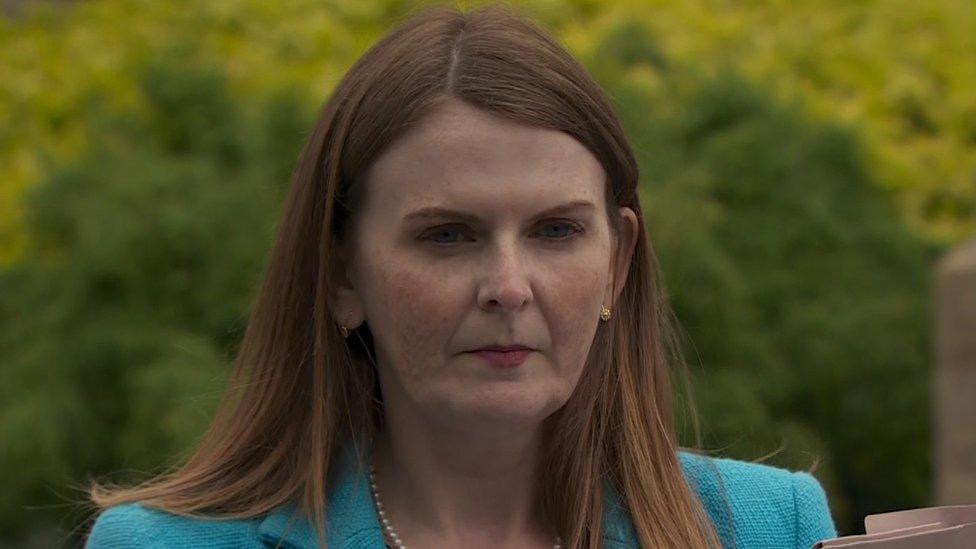Raising Northern Ireland tuition fees could generate £98m
- Published
- comments
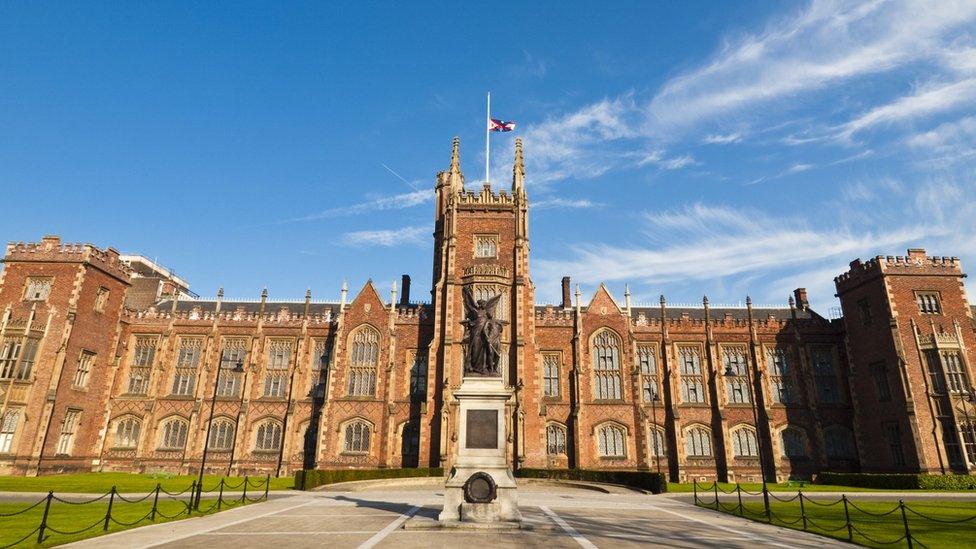
The current maximum tuition fee for full-time undergraduates in Northern Ireland is £4,710 per year compared to £9,250 in Great Britain
Officials at the Department for the Economy say raising Northern Ireland's student fees to the levels of those in Great Britain would generate about £98m.
The figure is part of a draft consultation prepared before the return of devolution.
It now looks unlikely the consultation will go ahead.
The new minister has expressed opposition to higher fees.
Last month Conor Murphy said: "I don't think increasing fees is the way to go. I think that's likely to reduce uptake in places in universities."
The current maximum tuition fee for full-time undergraduates in Northern Ireland is £4,710 per year, compared to £9,250 in Great Britain.
A consultation was ordered last year by the secretary of state as part of a broader look at revenue raising measures.
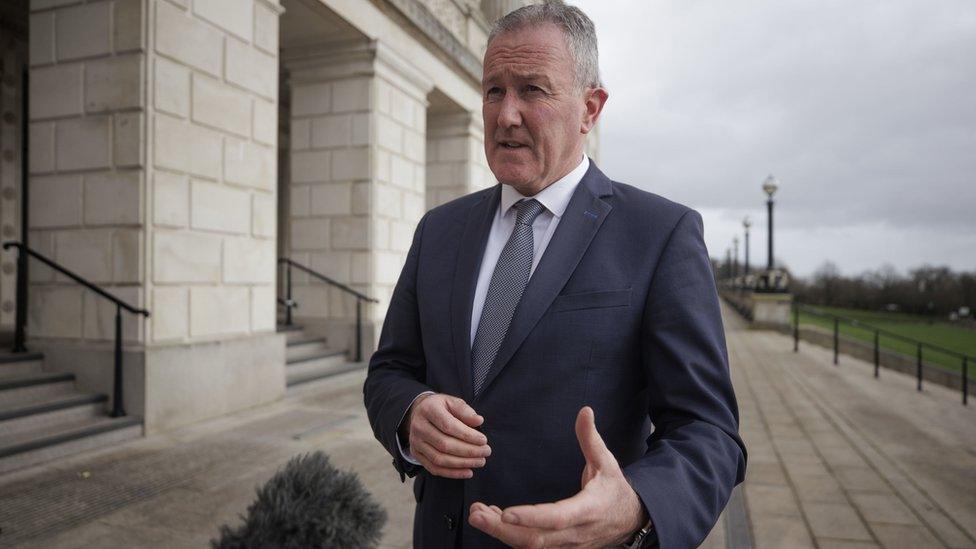
Economy Minister Conor Murphy has said he is opposed to higher fees
Officials drafted a consultation document which said the financial context was an £11m reduction in higher education funding last year.
They said they had been able to manage that without passing on significant cuts to the sector but this would not be sustainable in the longer term.
They added: "The current financial context is likely to see reduced levels of funding for higher education places unless additional income can be generated.
"The only income likely to address this challenge would be from higher tuition fees."
The draft consultation document therefore suggested four different fee levels: £6,000, £7,000, £8,000 and £9,250.
It added that while it would take a number of years for the full impact a £9,250 fee is likely to ultimately generate around £98m of additional revenue.
Any change would require the approval of the assembly and the executive and could not be introduced before 2026/27 to give due warning to students and allow for administrative changes.
The details are contained in a "First Day Brief", external for the new minister.
Related topics
- Published15 May 2023
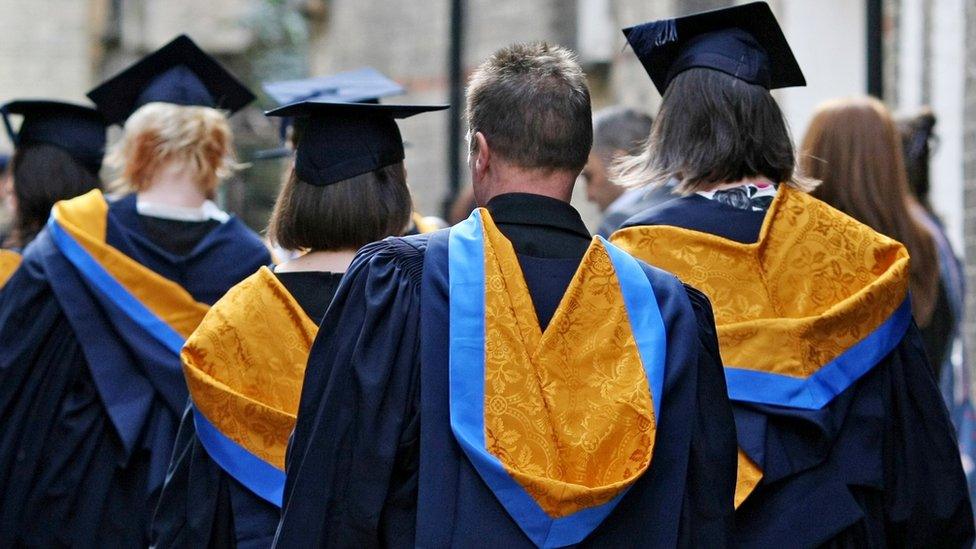
- Published20 February 2024
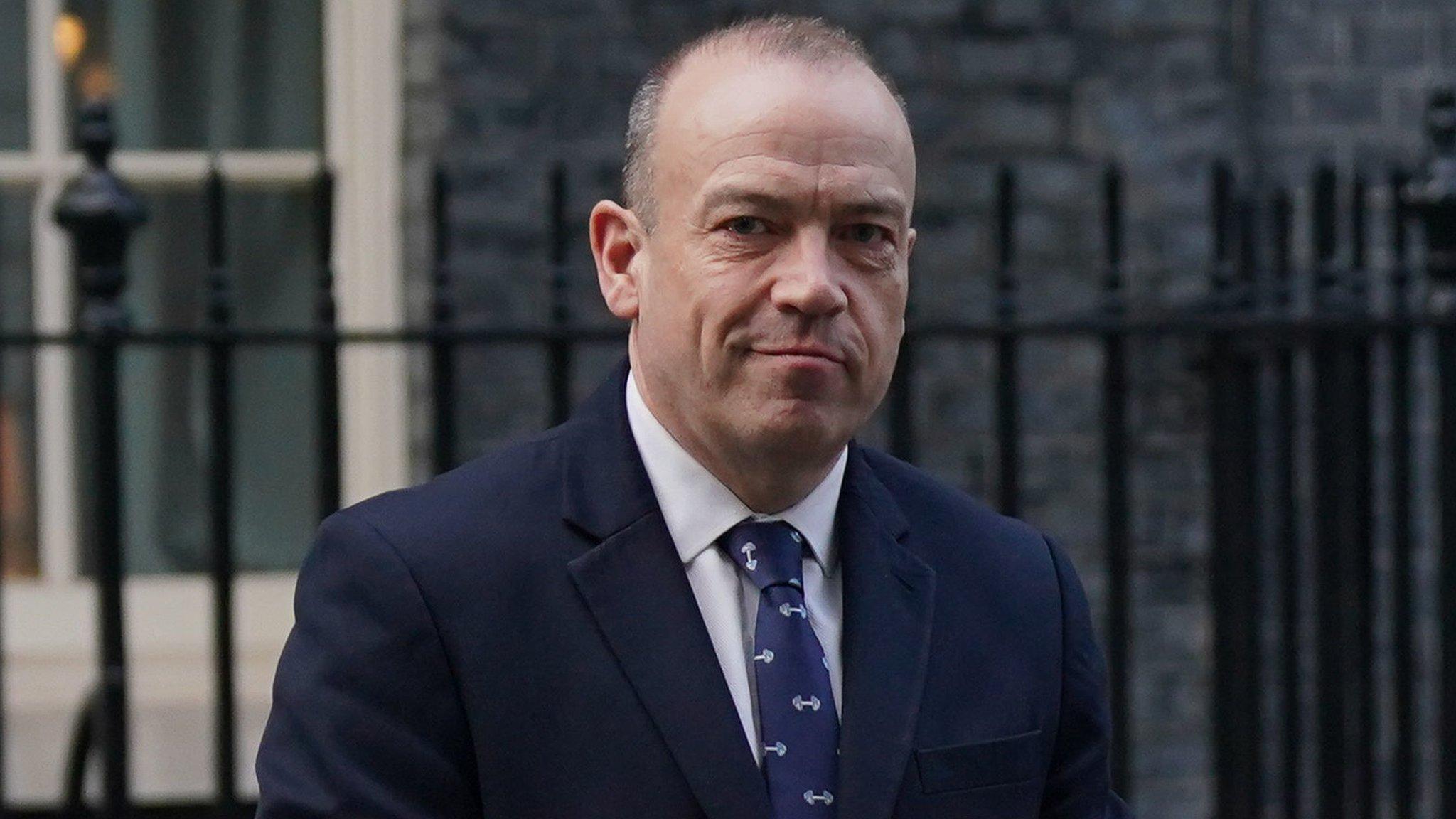
- Published13 February 2024
